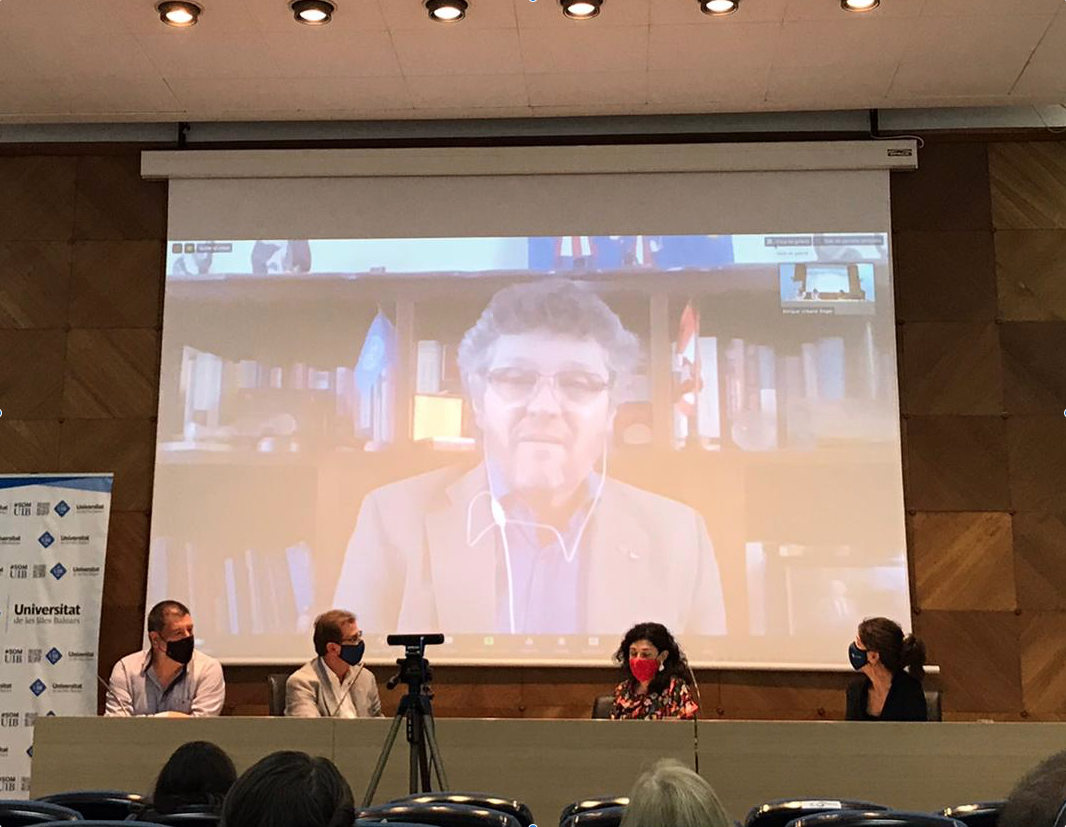The first edition of the “Postgraduate Course on policies and research in transitional justice and democratic memory” has been launched at the University of the Balearic Islands (UIB). This specialization course has been organized by the LIDIB (Human Rights Lab) at the initiative of the Autonomous Secretariat for Democratic Memory of the Ministry of Public Administrations of the Government of the Balearic Islands. Dr, Margalida Capellà, Director of LIDIB, is the Director of this Postgraduate Course.
The course began with the inauguration by the Dean of the University and the Governmental authorities and was followed by the inaugural conference by the United Nations Special Rapporteur on the promotion of truth, justice, reparation and guarantees of non-recurrence, Mr. Fabián Salvioli, entitled “Advances and challenges of transitional justice”. This conference is part of the first module of the postgraduate course “The dark legacy of the 20th century: Keys to the past to understand the conflicts of the present”. The subsequent modules are:
Module 2: Heritage, memory and human rights (Nov 26-Dec 19)
Module 3: Investigation and exhumation of mass graves (January 7 to 30)
Module 4: Transitional justice, human rights and democratic memory: legal and historical framework (February 4 to 27)
Module 5: Reconciliation and reparation policies in transitional contexts (March 4 to 27)
This course will allow students to learn, work and debate in an interdisciplinary environment (law, history, political science, philosophy, archeology and anthropology, mainly) the following aspects:
- How should authoritarian regimes, armed conflicts and situations of past abuses be treated from a human rights perspective in the present time?
- How to face the legacy of the past from the rule of law and democracy perspective, and in accordance with international standards of transitional justice?
- What is the international and state practice in matters of transitional justice and of public policies and ethics on democratic memory?
- Which good practices can be applied at the local, regional or state level in specific areas, such as exhumation of graves, right to the truth and criminal justice?

